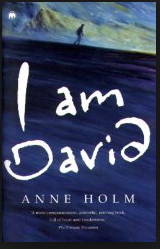Your teacher wants you to memorize poetry?
Why?
1. Learning by heart improves reading skills.
2. Learning by heart improves public-speaking skills.
– You learn to speak with confidence.
– You learn how to stand with good posture.
– You learn to enunciate words clearly and speak slowly enough that listeners can understand you.
3. Learning by heart improves memory skills.
– You will need to know many things by heart in life.
– Just like running laps gives your body practice for running a long-distance race, memorizing gives your brain practice at remembering.
– Deeper understanding of problems in life comes from holding facts in your mind and coming up with new insights.
4. Learning by heart provides a rest from writing and reading.
– So much of school involves your eyes: reading the board, reading books, reading textbooks, reading assignments.
– So much of school also involves writing: taking notes and completing assignments.
– Memorizing gives students who are better at learning by listening a chance to shine.
5. Learning by heart develops listening skills.
– Memorizing requires listening to yourself: are you speaking clearly and at an appropriate pace?
– Reciting in a group requires listening to others so as to maintain an even pace.
6. Learning by heart develops an appreciation for language.
– Memorizing helps you become more aware of the rhythms of phrases and the sounds of words.
– It helps you understand the power of consonance and assonance and alliteration.
– It also helps develop knowledge of powerful words.
7. Learning by heart develops empathy.
– Reciting in a group develops an awareness of others.
– Reciting in a group creates a feeling of belonging.
– Memorizing the same poems as others develops a sense of belonging and shared culture.
– Memorizing takes time and so encourages a deeper understanding of some of the great themes of literature and life.
– Memorizing enters the mind more deeply than reading and so can touch your heart more deeply.
– Memorizing great poems helps you make connections with people of other times and in other places.
8. Learning by heart eases loneliness.
– Holding great poems in your heart can remind you that you are not alone in this world.
– Remembering those poems later on in life can give you hope.
9. Learning by heart helps you listen to the voice inside of yourself.
– Memorizing helps you pull your energy into your body and focus for an extended period of time.
– It encourages you to feel the emotions inside of you but still have control of them.
– It lets you shut out other people and gives you some private time.
– Memorizing great poems encourages you to think great thoughts and come up with your own insights into life.
10. Learning by heart helps you become a person of great character.
– Great poems will surround you with beauty.
– Filling your mind with beautiful and true thoughts will help you become a person who is truly great in this world.
Great poems to memorize: HERE
Read more…
Diffily, Deborah. “Revisiting Family Involvement: Perspectives of Teachers and Families.” (2001).
Fisher, Ryan, Sujey Romero, and Andy Shin. “Building Students’ Social Capital Onstage: Examining the Codman Academy-Huntington Theater Company Partnership.”
Hadaway, Nancy L., Sylvia M. Vardell, and Terrell A. Young. “Scaffolding oral language development through poetry for students learning English.” The Reading Teacher (2001): 796-806.
Kang, Nina. “The Lost Art of Memorizing Poetry.” The American Reader. Web. 7 Oct. 2014. <http://theamericanreader.com/the-lost-art-of-memorizing-poetry/>.
Snider, Justin. “Rote Memorization: Overrated or Underrated?.” Huffington Post Canada. 25 May 2011. Web. 7 Oct. 2014. <http://www.huffingtonpost.com/justin-snider/rote-memorization-testing_b_817170.html>.
Turner, Ellen RM. “Why You Should Memorize Poetry.” Dappled Things. Web. 7 Oct. 2014. <http://dappledthings.org/2536/why-you-should-memorize-poetry/>.
This page may be copied for use by schools if the following credit is provided: ©2014 Sophie Rosen.









